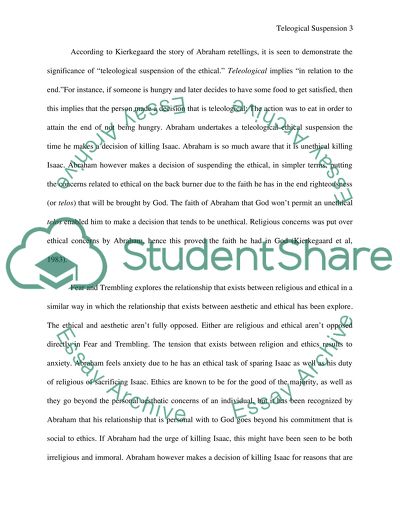Cite this document
(The Sake of Distinguishing Between Resignation and Faith Essay Example | Topics and Well Written Essays - 1750 words, n.d.)
The Sake of Distinguishing Between Resignation and Faith Essay Example | Topics and Well Written Essays - 1750 words. https://studentshare.org/philosophy/1631647-the-sake-of-distinguishing-between-resignation-and-faith
The Sake of Distinguishing Between Resignation and Faith Essay Example | Topics and Well Written Essays - 1750 words. https://studentshare.org/philosophy/1631647-the-sake-of-distinguishing-between-resignation-and-faith
(The Sake of Distinguishing Between Resignation and Faith Essay Example | Topics and Well Written Essays - 1750 Words)
The Sake of Distinguishing Between Resignation and Faith Essay Example | Topics and Well Written Essays - 1750 Words. https://studentshare.org/philosophy/1631647-the-sake-of-distinguishing-between-resignation-and-faith.
The Sake of Distinguishing Between Resignation and Faith Essay Example | Topics and Well Written Essays - 1750 Words. https://studentshare.org/philosophy/1631647-the-sake-of-distinguishing-between-resignation-and-faith.
“The Sake of Distinguishing Between Resignation and Faith Essay Example | Topics and Well Written Essays - 1750 Words”. https://studentshare.org/philosophy/1631647-the-sake-of-distinguishing-between-resignation-and-faith.


